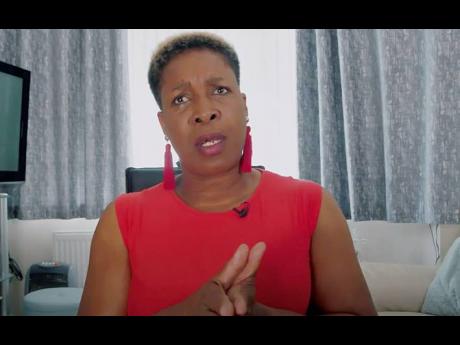Windrush documentary on Barrel Children is UK box office hit
LONDON:
A Windrush documentary highlighting the experiences of children left behind by those who had accepted the invitation to migrate to Britain to assist in the rebuilding of the country after World War II has become a UK box office hit.
Directed by former Weekly Gleaner writer and award-winning journalist Nadine White, Barrel Children: The Families Windrush Left Behind peaked in the UK’s top 25 films during its opening weekend of June 24-25. It was the only grass-roots film, directed and independently distributed by a black person to smash the UK box office, ranking above The Dark Knight Rises (Warner Bros), Matilda the Musical (Sony Pictures) and Mamma Mia (Universal) among others.
It was screened in Picturehouse Cinemas across the UK, ending on a high with a sold-out finale screening at The Ritzy in Brixton on July 20
White, 30, tells The Weekly Gleaner, that the response to the documentary has been very positive. “With a desire to tell stories that have yet to be adequately explored, the response to this, my first documentary, has been overwhelmingly positive. From the star-studded, intimate première on June 24 to a three-week cinema run and box office success, the film has performed well.”
She continued: “I’ve received lots of good feedback from people who have seen the documentary as well as queries from folks who have yet to see it but would like to, regionally and overseas. Lots of people in Jamaica have requested for the film to be screened there, too. I give God thanks and extend heartfelt gratitude to everyone who has supported the film!”
‘Barrel children’ was the name given to those who were left back home in the Caribbean when their parents departed for Britain as part of the Windrush generation. White’s evocative and moving documentary gives voice to those individuals whose Windrush parents left them behind.
Among former Barrel children sharing their personal experiences in the documentary are prominent Jamaicans Evadney Campbell MBE (managing director and co-founder of Shiloh PR), Steve Burnett-Martin aka Blacker Dread (music producer and community activist), and Neil Kenlock MBE (photographer and media professional).
“Humanity is at the core of this documentary,” White told The Weekly Gleaner. She continued: “Highlighting these perspectives illustrates the reality that we, as people, are shaped by our circumstances. We feel things and we all have valid tales to tell and truths to divulge. Barrel Children: The Families Windrush Left Behind holds space for these tales in a society that is typically quick to dismiss black truths as irrelevant and inadequate. To that point, the film is radical at its core, and yet the objective is simple: to amplify marginalised perspectives and foster healing, through the sharing of testimony, within Caribbean families in particular.”
ATTACHMENT THEORY
The documentary gives insight into the trauma Barrel children experienced, first through separation from their parents and then later from the grandparents who had taken care of them until those who had migrated to Britain found themselves in a position to send for their children to be with them in the UK.
The contribution of Dr Elaine Arnold on the impact such trauma has created within Caribbean families was immense. “Dr Elaine Arnold is one of very few academics in the world who has studied attachment theory in the context of African-Caribbean families and migration,” said White.
“She’s been looking at this issue since the 1970s! The lady is a real general. Along with testimonies from the former Barrel children, Dr Arnold’s input was central to the documentary to further help viewers understand the psychological and emotional impact of this phenomenon.”
The theme tune for the documentary – Promised Land by legendary reggae artiste, Dennis Brown - held some significance within the context of the themes explored, White told The Weekly Gleaner. “The song choice was poignant and yet Promised Land is also full of hope and transcendence,” she said.
White continued: “It reflects the aspirations that many of the Windrush migrants held dear as they embarked on a journey into the unknown: Britain. There’s an irony through the use of the song, too, in that they had this idea that Britain, “the Mother Country,” was a promised land of sorts; a place where their dreams could come true and better prospects could be sought.
“However, following their arrival, the trailblazing migrants realised it was not an ideal place to live in the way that one would expect of a “promised land”. No, the migrants suffered great trauma and indignities in a country that as it turned out, was quite hostile towards them because of their blackness.”
INSPIRATION
White, a former Forbes 30 Under 30 honouree and recipient of the Paulette Wilson Windrush Award for her outstanding reporting on the Windrush scandal in 2020, gave credit to legendary reggae pioneers who contributed to the support of the documentary. “I must give credit to the family of Dennis Emmanuel Brown for their support of the documentary, particularly Marla Brown. It is also right that we reflect upon the legacy of Angus ‘Drummie Zeb’ Gaye, one-third of the UK reggae supergroup Aswad, which popularised the riddim (known as the Love Fire or Promised Land riddim). Drummie died last year.”
White, also a former journalist at The Voice newspaper, has, since 2021, been working at The Independent as Britain’s first dedicated race correspondent. As well as highlighting the likes of Sir Trevor McDonald, Moira Stewart, Ronke Philips, and Barbara Blake-Hannah as examples she looked up to in journalism alongside Marcus Garvey and Maya Angelou on the world stage, it’s her late father who White points to as the inspiration for her documentary.
“My father, Dereck White, was a former Barrel child. He was born in Trelawny, Jamaica, and raised by his maternal grandmother for most of his childhood while his parents migrated to England. Daddy suddenly passed away in 2004 when I was 11 years old. This broke my heart because we were extremely close.
“I remember that he’d regale my brother and I with stories of his childhood years in Jamaica, in particular, how close he was with his grandmother, her personality and approach to childrearing, plus how difficult it was for him to leave her after being ‘sent for.
“I was always mindful of his accounts and realised, as I grew older, that his experience of being ‘left behind’ wasn’t unique. Many other Caribbean kids went through the same thing and, oftentimes, were greatly affected by this transition.”
Over a Barrel: Windrush Children Tragedy and Triumph – an interactive Windrush 75 Season exhibition co-curated by Nadine White may be viewed at the Black Cultural Archives in Brixton’s Windrush Square until September 10.



